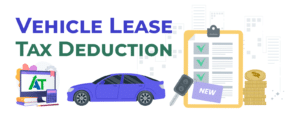Author Archives: Advanced Tax
Why Outsource Bookkeeping Services
Why Outsource Bookkeeping Services for Your Business Maintaining financial records in-house becomes challenging for business[Read More]
16
Jun
Jun
Car Lease Tax Deduction in Canada
Car Lease Tax Deduction Rules for Employees and Businesses in Canada In Canada, there is[Read More]
29
May
May
Penalty for Late Tax Filing
The Penalty for Late Tax Filing in Canada Adds Up to Impactful Consequences The personal[Read More]
15
May
May
Federal Budget 2024 Canada Summary
Federal Budget 2024 Canada Summary: Key Highlights for Businesses and Individuals The Canadian Federal Budget[Read More]
26
Apr
Apr
Tax on Crypto Gains in Canada
Guide to Tax on Crypto Gains in Canada Cryptocurrency is becoming a more common investment[Read More]
14
Apr
Apr





